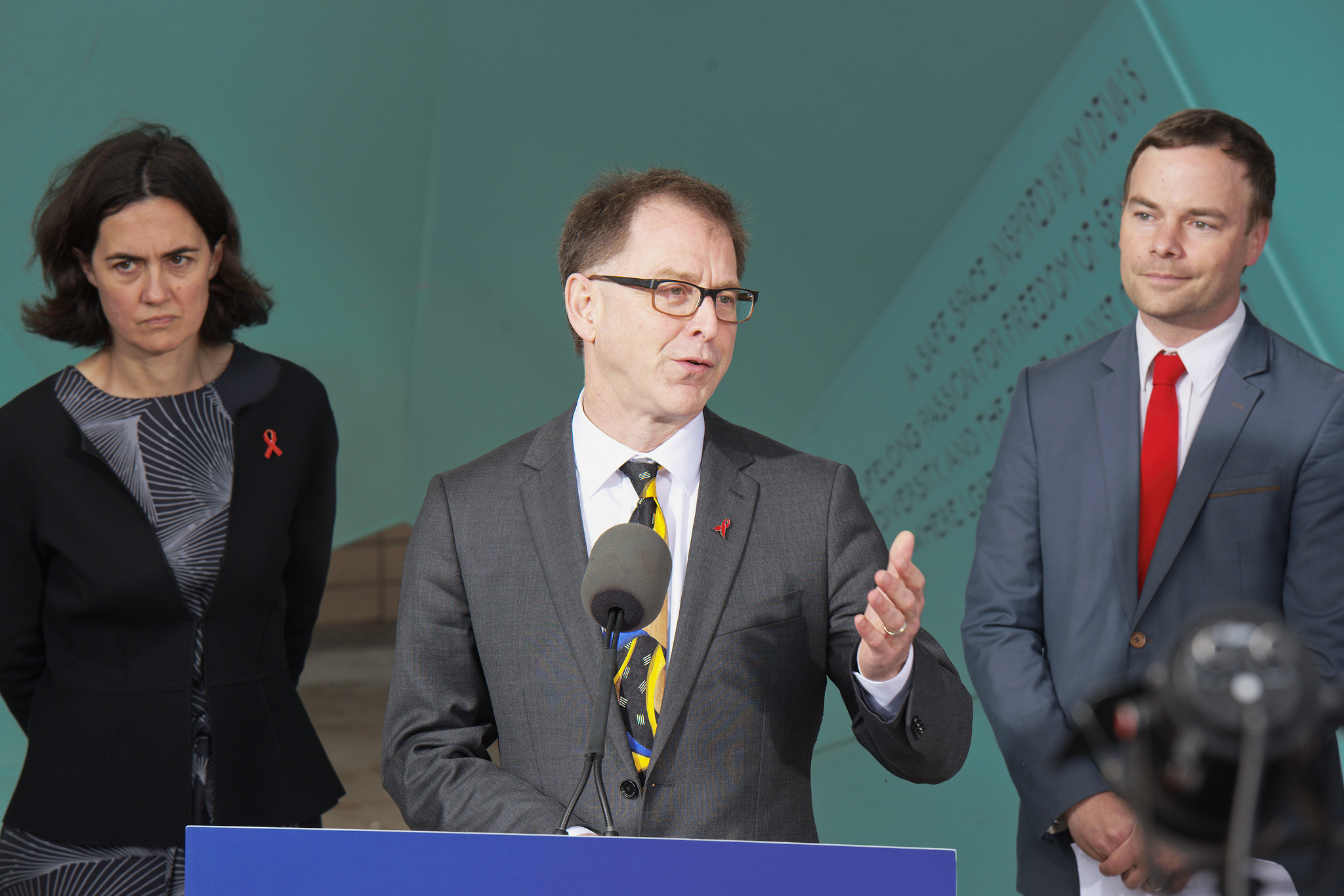Six months after agreeing to cover HIV-prevention drugs for free in British Columbia, the provincial government says nearly 2,000 people have used the program.
In a press conference framed by rainbow crosswalks in Vancouver’s West End, BC Minister of Health Adrian Dix said the program is “by healthcare standards, an extraordinary bargain, and by human standards, an extraordinary success.”
Flanked by West End MLA Spencer Chandra Herbert and the architect of BC’s HIV treatment program Dr Julio Montaner, Dix touted the province’s HIV program as “the largest publicly funded effort of this nature in North America.”
Pre-exposure prophylaxis (PrEP) is a daily medication that can reduce the chances of contracting HIV by over 90 percent. The cost of PrEP was a major barrier to access until the BC government announced in December 2017 that it would fully cover the drug.
The vast majority of people who take PrEP in Canada are men who have sex with men.
The BC Centre for Excellence in HIV/AIDS, which runs the provincial PrEP program, estimates that if the program can expand to cover 5,000 people, it will cut new HIV infections in the province by 90 percent.
By the most recent numbers, over 200 people contract HIV in BC every year, more than half of whom are gay and bisexual men.
PrEP is recommended in BC only for patients who doctors consider to be at highest risk of contracting HIV, including gay and bisexual men who have HIV-positive partners or who have sex without condoms.
The press conference addressed some unanswered questions about BC’s PrEP program, including how much it might cost and who would have access to it.
Dix says that in the six months since the program started on Jan 1, BC has spent $186,000 on PrEP. This number suggests the province is getting a substantial discount on PrEP drugs, as Montaner promised they would last year, since that price tag would cover fewer than 200 patients for a single month at the drug’s brand-name cost.
Numbers on where people are accessing PrEP in BC, however, paint a more discouraging picture. The majority of patients were in the Vancouver area, with only 23 new PrEP prescriptions in the northern half of BC, where HIV transmission rates are second only to Metro Vancouver.
Despite the PrEP coverage program, many at-risk people in the north struggle to access the drug due to stigma and lack of healthcare resources.
Access to doctors who are willing to prescribe PrEP, and commit to the regular follow-up visits that the regimen requires, has also been a limiting factor in the rollout of PrEP. Montaner says the province has added 400 new PrEP prescribers since January to help increase supply.
Montaner also addressed the worry that an increase in PrEP use could lead to less condom use and higher rates of other sexually transmitted infections such as syphilis and gonorrhea. He said research has not shown reduced condom use among PrEP users, and that only those already at high risk are being treated.
“We are hoping that PrEP will bring people into the system,” Montaner said, “where we can identify those who have other sexually transmitted diseases, and discuss with our clients other means of protection that may be appropriate for them.”
Montaner says the real danger is that as HIV rates drop quickly, people will become complacent about public health.
“Every time you’re winning, when the numbers go down, the public, the politicians, the public system, tends to shift its attention to the next crisis,” Montaner said. “It has to be pedal to the metal all the way through, or there will be a rebound.”
BC is the only Canadian province to cover PrEP fully through a provincial pharmacare program. Ontario and Quebec both partially subsidize the drug.


 Why you can trust Xtra
Why you can trust Xtra


